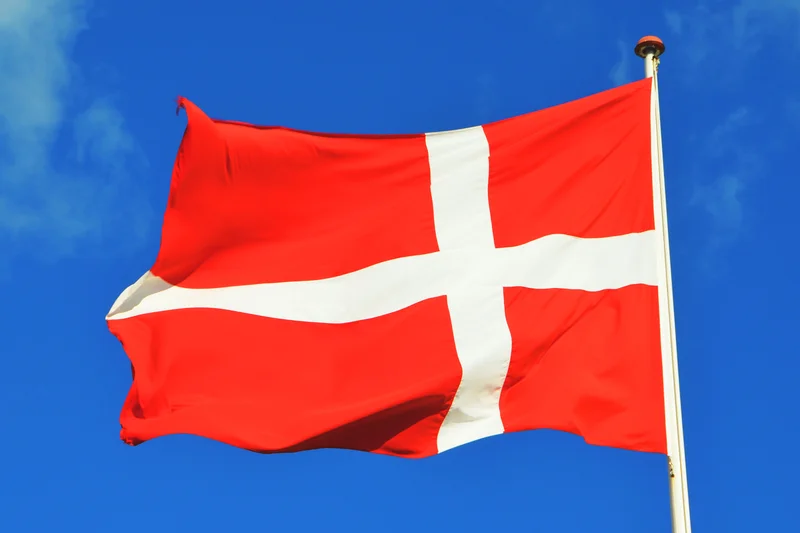Denmark: Election Losses and Hardline Asylum – What We Know
Labour's Asylum Shift: A Data-Driven Look at the Danish Mirage
The Labour government's recent announcement of "sweeping asylum reforms" – Home Secretary Shabana Mahmood's words, not mine – has predictably sparked debate. The stated goal is to emulate Denmark's hardline approach, aiming for a system that's "fair, effective and humane," according to Prime Minister Starmer. But does the data support the idea that Denmark offers a viable model? Let’s dig in.
The core of the proposed change involves a shift from indefinite leave to remain (ILR) for refugees to a "core protection" status, renewable every 30 months, with no prospect of permanent settlement for 20 years. Family reunion will be curtailed, and benefits tightened. The justification? To create a system that deters asylum seekers and addresses public concerns about fairness.
But here's where the data starts to get interesting. As Miranda Bryant, the Guardian’s Nordic correspondent, points out, Denmark's system has become increasingly harsh since 2015. Residents' permits were slashed, and a "paradigm shift" in 2019 prioritized repatriation over integration. The key question: did this actually solve the immigration issue for Denmark?
The Danish "Success": A Closer Examination
The Social Democrats in Denmark, led by Mette Frederiksen, adopted a tough-on-immigration stance, even advocating for zero asylum seekers. This strategy, seemingly, helped them win votes from the far-right Danish People's Party. Support for the DPP plummeted, but is that a victory or a Pyrrhic one?
The inconvenient truth is that the far-right is climbing in popularity again, pushing for even more extreme measures like "remigration." So, the initial drop in DPP support appears to have been a temporary blip, not a fundamental shift in public sentiment.
And this is the part I find genuinely puzzling. It's like trying to fix a leaky faucet with a bigger wrench. The underlying problem – anxieties about immigration – remains, regardless of how harsh the policies become.
Denmark's own legal system has thrown up roadblocks. Hundreds of Syrian refugees had their residence permits revoked, but the appeals court blocked their forced return. The result? A system that looks tough on paper but struggles to deliver in practice. The rhetoric, Bryant notes, may deter asylum seekers, but the actual policy is often unenforceable.
The Political Fallout: A Warning Sign for Labour?
Alex Norris, the border security and asylum minister, claims that "political considerations don't come into this." But let's be real: the timing of these reforms, coupled with Labour's declining poll numbers, suggests otherwise. The party is clearly trying to regain ground lost to Reform UK and the right-wing press.
But is Denmark a good model to emulate? Municipal elections in Denmark paint a troubling picture. The Social Democrats suffered sweeping defeats, losing control of Copenhagen for the first time in over a century. Frederiksen herself admitted the decline was "greater than we had expected." Analysts attribute this decline, in part, to voter fatigue over Frederiksen's hardline immigration policies. Copenhagen, a "super cosmopolitan city," seems to have rejected her approach, turning instead to left-wing and Green parties. Social Democrats in Denmark suffer sweeping election losses

This is a crucial point that Labour needs to consider. Are they willing to risk alienating their traditional base in pursuit of a strategy that may not even work? The data from Denmark suggests that voters are increasingly disillusioned with the political center, regardless of its stance on immigration.
The UK Home Office claims to have removed or deported 48,560 people since Labour came to power – a 23% increase. But that hasn't quieted the noise from Reform. So, Labour is chasing a phantom, sacrificing principles for a mirage of political gain.
It's worth remembering that Denmark has a coalition-based political system, making direct comparisons to the UK problematic. What works (or, more accurately, doesn't work) in Denmark may not translate to the UK context.
The "Fairness" Fallacy
The government frames these reforms as a way to restore "fairness." But fairness for whom? The proposed changes will create a system where refugees are stuck in a perpetual state of limbo, unable to build a stable life or contribute fully to society. As Stella Creasy, the Walthamstow MP, argues, this is not only "performatively cruel" but also economically misjudged.
If refugees can't stabilize their status, they'll struggle to find jobs, open bank accounts, or get mortgages. This will likely increase their dependence on state or charity support, undermining the very goal of reducing the burden on taxpayers.
And this is where the methodological critique comes in. How is "fairness" being defined? Is it based on data about the economic impact of immigration, or is it simply a reflection of public sentiment, swayed by right-wing narratives? The lack of transparency in the government's data is concerning.
The data suggests that the Danish model is far from a success story. It has created a system that is harsh, destabilizing, and legally questionable. Copying this approach would be a mistake. Think twice before copying Denmark’s asylum policies
Is This Just Political Theater?
Badenoch has offered her party's support for the plans, seeing an opportunity to exploit divisions within Labour. This suggests that the reforms are as much about political posturing as they are about solving a real problem.
The government is prioritizing optics over substance, sacrificing the well-being of vulnerable people for a fleeting moment of political advantage. It's a cynical calculation, and one that is likely to backfire.
The Data Just Doesn't Add Up
The Labour government's asylum policy shift, framed as a move towards fairness and effectiveness, is, in reality, a gamble based on flawed data and a misunderstanding of the Danish experience. The numbers simply don't support the claim that Denmark offers a viable solution.
Tags: denmark
Xiaomi's Memory Crunch: Price Hikes in 2026 and Phone Plans
Next PostBitcoin's Dip to $88K: Nvidia Earnings Impact and What We Know
Related Articles
